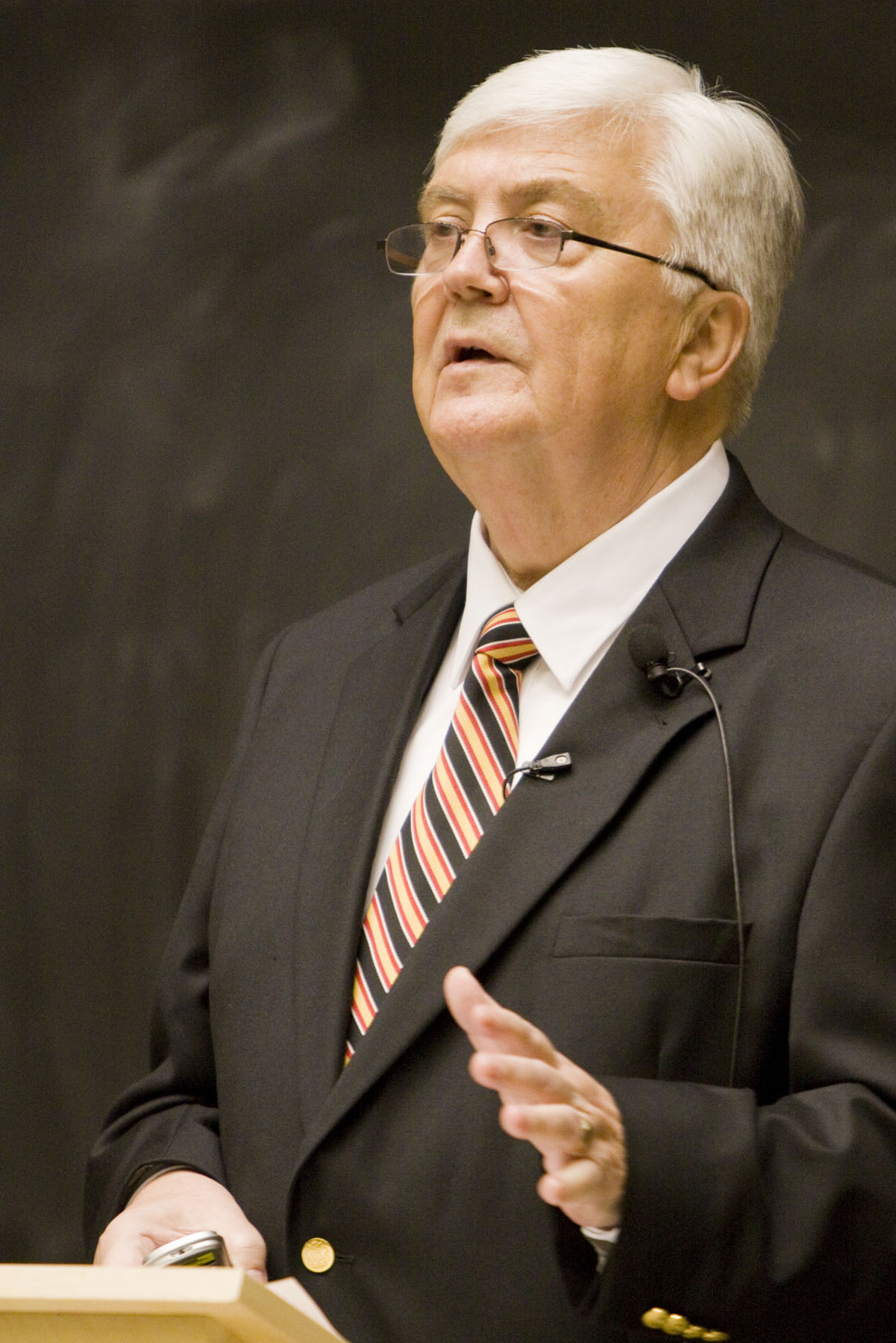September 16, 2010 — In 2007, Iceland was basking in the news that the tiny island nation had been named the best place to live in the world by the United Nations, based upon its life expectancy rates, educational levels and economic health.
Just one year later, in the fall of 2008, the country's economy imploded with the collapse of its three largest banks. Iceland's ambassador to the United States, Hjálmar W. Hannesson, told a University of Virginia audience Monday that before the collapse, "the catastrophes we have been through in the history of Iceland have always been from nature – the disappearing of fish stocks, famine, volcanic activity, cold periods."
Now, Hannesson said, "we have been living with a man-made disaster in the last two years" and it is "unbelievable when we look back" at the U.N. ranking.
The exchange rate of the country's currency, the krona, was 61 to one U.S. dollar in September 2008. It is now 118 to the dollar, and the country is at odds about how to dig itself out of its economic crunch. "I myself lost one-third of my savings and some people are still losing," Hannesson said.
In 2009, the Icelandic parliament voted narrowly to seek membership in the European Union as a way to stabilize the economy. Negotiations begin in November, with Iceland's rich fishery zones and energy issues sure to be sticking points.
Once those negotiations are complete, the country will have a referendum on EU membership. "About 60 percent of the people of Iceland are against us joining the EU at the moment," cautioned the ambassador.
At the same time, parliament is weighing whether to put the country's former prime minister and ministers of commerce and finance on trial for financial mismanagement.
Hannesson, who kicked off the University's annual Ambassadors' Speakers Forum, sponsored by the Office of the Vice Provost for International Programs, gave students, faculty and guests a brief tutorial on the pronunciation of the famed volcano, Eyjafjallajökull, which erupted for several weeks last spring, halting air traffic and stranding millions of travelers.
He handed out DVDs about his country to audience members and reminded them that the current exchange rate makes it a wonderful time to travel to his country. "Tourism to Iceland has grown tremendously. It is inexpensive to stay in Iceland and the stark beauty of the land is unchanged."
He also noted its extremely small population. "We have 318,006 people. It's important to count every person."
The 2010-11 Ambassadors' Speakers' Forum will also feature ambassadors from the Netherlands, Bosnia-Herzegovina and Brazil this fall.
Media Contact
Article Information
September 16, 2010
/content/ambassador-iceland-working-recover-financial-collapse

